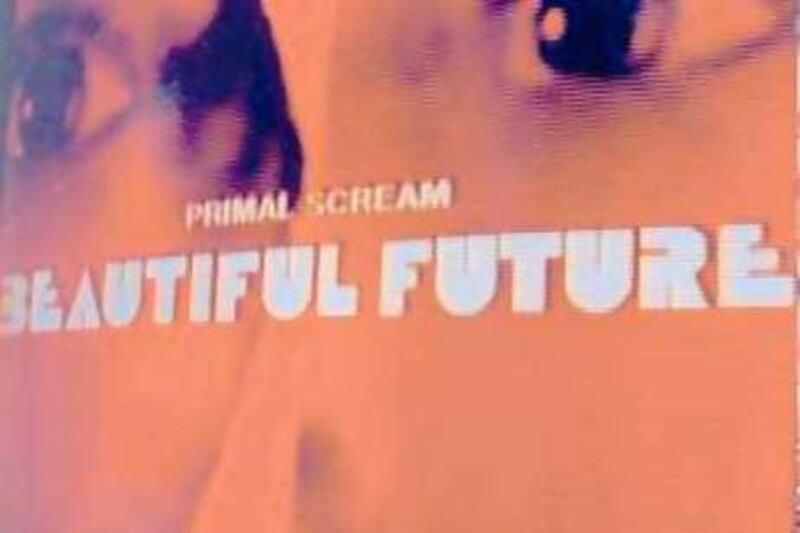Rock 'n' roll bands were not made to last. In other genres, like country or jazz, artists chug along year after year, release after release, filling reams with their discographies. Call me old fashioned, but rock 'n'roll bands are meant to be different: casualties stack up, egos rise like tectonic plates, or at the very least "artistic differences" shatter once-inseparable units into solo incarnations. The Rolling Stones changed all that. They broke one of the final taboos of rock. Once wizened geriatrics with knighthoods can strut and swagger upon the stage with impunity, anything goes.
I confess Primal Scream have, for me, long since shrunk to a whimper. Perhaps this says more about their 1991 album Screamadelica than the quality of their music since. I can listen to this album over and over without tiring and without failing to be awestruck by its brilliance. Some critics say Primal Scream have been cut a lot of slack due to nostalgia for this masterpiece, but for me it is the opposite. The band should be happy with what they have created and follow the venerable Alice Cooper's example: take up gardening or golf. But they keep on coming back.
Beautiful Future is the band's ninth studio album in a career spanning over 20 years. It is unashamed pop. Recorded in Stockholm and produced by the Swedish indie kid Björn Yttling, it is brimming with driving beats, groovy bass lines, raucous guitars, staccato keyboards and insistent melodic chimes. The title track's bouncy beat, catchy chorus, peals of bells, breakdown and subsequent euphoric finale, mark it out as a power pop anthem. Then you hear the lyrics, which are simply ridiculous. Perhaps that's the point. It's as if they were penned by a nervy, histrionic Swede, put through Google's web-translation service and placed unedited in Gillespie's mouth. "Uh-oh, you live in a dream, in the dead heart of the control machine," to give just one example. If you can somehow imbibe them as abstract sounds, detached from meaning, you will enjoy this album a lot more.
Uptown owes more than its title to Prince. The pulsating groove and one-word chorus backed by atmospheric synths and strings evoke the finest in Eighties montage. Glory of Love has a catchy riff, dirty bass line and a nagging chorus that you will find yourself humming days later. So far, so ebullient. These songs are good songs, but - even putting the lyrics aside - something about them is akin to watching an uncle flailing on the dance floor at a wedding. You cannot help but cringe.
Beautiful Future has only one great song and tellingly it is a cover. On Over and Over, originally by Fleetwood Mac, shimmering, reverb-soaked atmospherics and slide guitar combine beautifully with Linda Thomson's vocals and Gillespie at his most heartfelt since the 1991 ballad Damaged.
In the end, it is not enough. Despite its undeniable verve, its juggernaut momentum and its quadragenarian kicks, Beautiful Future gives out nothing new.
@email:rcarroll@thenational.ae





